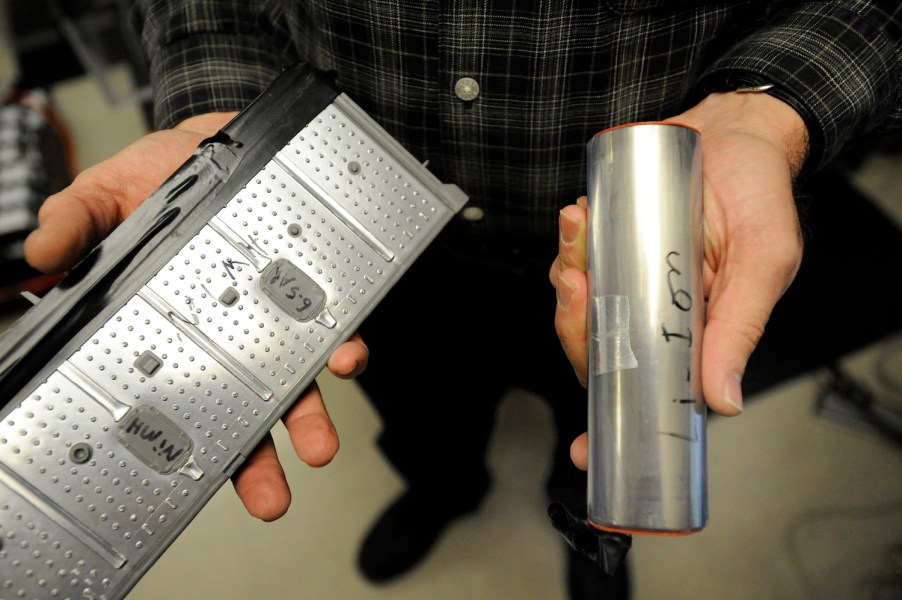
Is a Nickel Metal Hydride (Nimh) Hybrid Battery Actually Worse?
Among fans of hybrid and EV vehicles, its common knowledge that Lithium Ion (Li-ion) batteries are a more modern–albeit more expensive–solution than nickel metal hydride (NiMH). And theoretically, this is true. But some automakers still build hybrids with NiMH batteries, and there are several reasons they may be better in the real world.
What is the difference between a Lithium-ion battery and a nickel hydride battery?
Lithium-ion (Li-ion) and nickel hydride (NiMH) are both types of rechargeable batteries. The chemical composition of a Li-ion battery means it can hold more energy in less weight and space. It can also charge and discharge this electricity faster than an NiMH battery.

Because of the strengths of a Li-ion battery, this is the chemistry used in most consumer electronics to keep their weight and size down. Do you carry a cell phone? It almost certainly has a lithium-ion battery pack.
A NiMH battery with the same capacity as a Li-ion battery will be larger and weigh twice as much–or more. They will also charge slower, and it will take more time to extract that energy from them. But nickel is more plentiful than lithium and thus NiMH batteries are cheaper. Because an NiMH battery’s cell voltage is comparable to a disposable alkaline battery, most AA and AAA-replacement rechargeable batteries are NiMH.
Do nickel hydride (NiMH) batteries last longer?
Another major benefit of a Li-ion battery is that they don’t suffer the “memory effect” that causes other batteries to lose capacity with every charging cycle. That said, Li-ion batteries do lose capacity over time and degrade faster than NiMH in extremely hot or cold temperatures.

Toyota built the first several generations of its Prius hybrid with NiMH batteries. In 2015, it began offering Li-ion batteries in many Prius trims. But the automakers still assembles the AWD Prius (AWD-e) with NiMH batteries. Toyota also builds its hybrid Tundra pickup trucks with NiMH batteries.
Torque News explains that NiMH batteries last through more recharging cycles in extreme temperaturs. This makes them a better choice in both very cold and very hot climates. Because Toyota predicts that more folks used to driving in poor weather will opt for an AWD Prius, it equips those cars with NiMH batteries. The automaker may be applying the same logic to its Tundra pickup trucks, though both 2WD and 4WD models leverage NiMH batteries.
Are nickel hydride (NiMH) batteries more sustainable?
Nickel hydride (NiMH) batteries are currently much easier to recycle than Lithium-ion (Li-ion) batteries–so you might think they’re more sustainable. But a recent study published on MDPI.com found that an average NiMH battery has a much more damaging environmental impact.

Toyota Prius Lithium-ion battery pack | Toshifumi Kitamura/AFP via Getty Images
Because there is no good process to recycle Li-ion batteries, the number of EVs using them is increasing rapidly, and new lithium mines take a long time to open, a future lithium shortage is likely.
This looming shortage may be another reason Toyota is still manufacturing some Prius trims with a NiMH battery. If the automaker continues engineering an NiMH version of every generation Prius, it would be easy to pivot to all-NiMH production if necessary. If there’s a supply chain issue, Toyota’s foresight might prevent Prius prices from going through the roof–or production pausing altogether.
Lithium-ion is certainly a better battery for hybrids and EVs on paper. But in the real world–with fluctuating operating temperatures, a finicky supply chain, and vehicle prices on the rise–NiMH offers several key benefits.
Next, find out if you can increase a hybrid or EV range with a battery upgrade.



